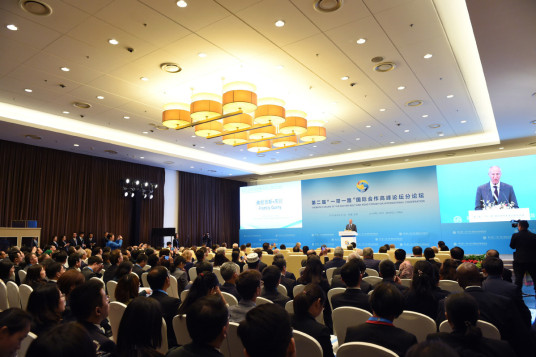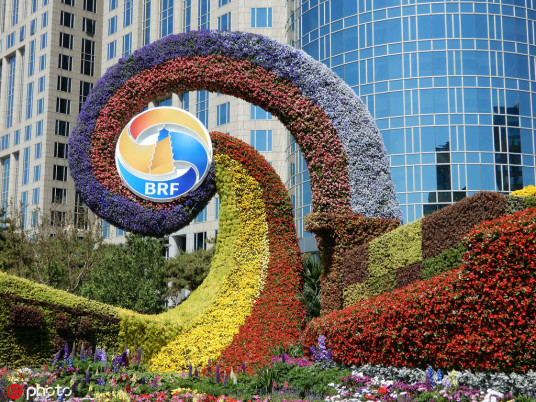Initiative a 'boulevard' of innovation for globe
 |
|
Francis Gurry, director general of the World Intellectual Property Organization, speaks at the Thematic Forum on Silk Road of Innovation of the Second Belt and Road Forum for International Cooperation (BRF) at the China National Convention Center in Beijing, capital of China, April 25, 2019. [Photo/Xinhua] |
China will expand scientific cooperation and talent training, enhance intellectual property protection, and build new joint laboratories and innovation centers with countries and regions involved in the Belt and Road Initiative, officials said on Thursday.
These efforts aim to make the BRI countries more innovative, prosperous and sustainable in their development, and further improve the health and livelihood of the people from these regions and the world, they said.
"China is a participant and beneficiary of the globalization of science and technology, and it's a contributor and leader in promoting scientific cooperation," Wang Zhigang, minister of science and technology, said at a themed subforum on innovation at the Second Belt and Road Forum for International Cooperation.
"Transforming the Belt and Road into a boulevard for innovation is part of China's aspiration of expanding its scientific outreach and sharing its innovation achievements with others," he said.
For the last two years, China has jointly held 146 workshops with countries participating in the BRI, training more than 2,100 science personnel, Wang said. China has also trained more than 1,800 foreign doctoral and master's students, and more than 800 young scientists from places participating in the BRI have visited China for research.
State-level joint science parks are also in the works between China and eight other countries-Egypt, Indonesia, Iran, Israel, Mongolia, the Philippines, South Africa and Thailand. Wang said these parks, along with other incubators and innovation centers, are collaborating in more than 20 fields, including agriculture, medicine and health, new energy and materials, food processing and ecological protection.
 |
|
A flower bed themed "Belt and Road" in Beijing. Photo taken on April 25, 2019. [Photo/IC] |
He said China will further expand its scientific outreach, and create more convenient conditions for personnel exchanges and projects. The country will also enhance intellectual property protection, build more flagship joint laboratories, and collaborate with BRI partners in artificial intelligence, life sciences, advanced manufacturing, modern agriculture and other high-tech fields.
Bai Chunli, president of the Chinese Academy of Sciences, said more than 40 research institutions from BRI participants have joined the Alliance of International Science Organizations. Launched in November, the alliance is the first organization dedicated to connecting BRI scientific communities, with the goals of improving scientific cooperation, sharing knowledge and promoting sustainable development.
Li Xiaohong, president of the Chinese Academy of Engineering, said that Chinese engineers had laid 34 cross-border land communication cables and six underwater cables for 12 BRI participants as of the end of last year.
Francis Gurry, director-general of the World Intellectual Property Organization, said the initiative offers "extraordinary opportunities in operationalizing innovations", leading to more intellectual property that is crucial for building a healthy innovation ecosystem.
